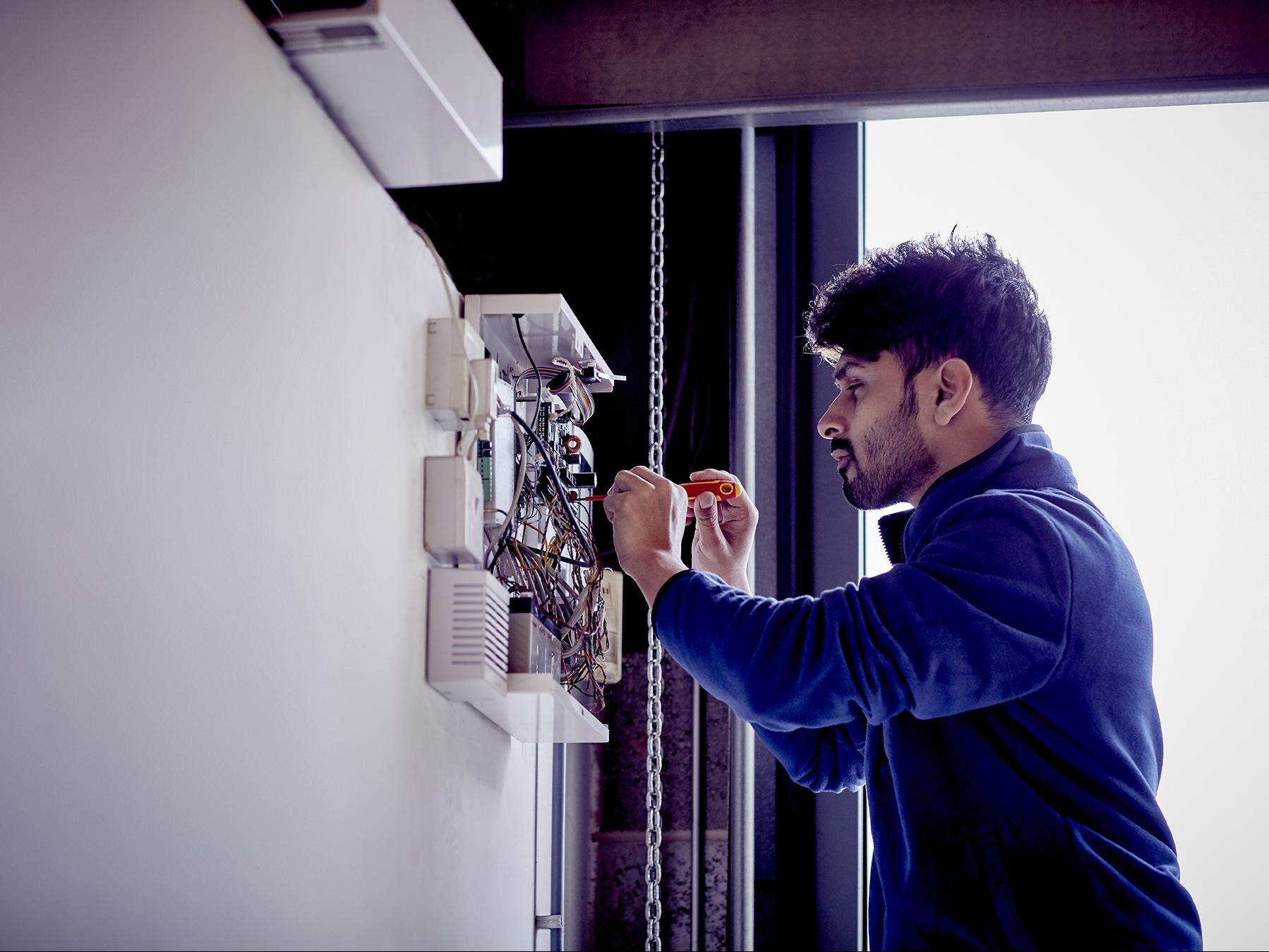
Brian Sims
Editor

Brian Sims
Editor
IN THIS exclusive for Security Matters, Nick Whiting explores the world of alarm signalling in detail and, specifically, assesses how the industry-led Electronic Call Handling Operations (ECHO) initiative is transforming the way in which Alarm Receiving Centres (ARCs) communicate with the blue light Emergency Services.

Every second counts in an emergency. Each incident needs to be given maximum attention to minimise potential harm and damage. The first thought, of course, is often to call 999. With estimates from the most recent Office for National Statistics Crime Survey showing that there were around 12 million offences in England and Wales in the 12 months leading to December 2020, it’s clear that the Emergency Services have their work cut out.
That statement rings particularly true when you also consider the number of incidents requiring the attentions of the ambulance service, Fire and Rescue Services and, indeed, the national Coast Guard.
On that basis, then, it’s even more important for businesses to do everything they can to ensure an Emergency Services response to their alarm systems.
Sharing information
There are somewhere in the region of 90,000 calls made to the 999 service on a daily basis. This means there are many incidents that need the attention of the blue light Emergency Services. As part of these incidents being reported there will be ARC operators calling police service Control Rooms to notify their own staff cohort of triggered intruder and hold-up alarms, which can be a sign of trespass, burglary or personal attack, etc.
These calls are typically conducted manually with voice calling. Given the sheer volume of calls being fielded, and despite having well-trained and dedicated call handlers in operation, the whole process can still result in errors when it comes to the messages being conveyed. ‘Green Lane’ might be referred to as ‘Green Street’ and ‘Princess Close’ as ‘Princess Road’ or perhaps the nature of the incident being played out could be misconstrued altogether.
Inaccurate data will result in a delay in police officers arriving on scene. That in itself can have significant knock-on effects for the premises and the owner.
Another challenge is that there’s a lack of consistency in processes between ARCs and police services, in turn meaning that the speed of information delivery, the information shared and the volume of calls relating to alarm triggers can vary significantly.
Duty to change
The security industry has a duty to keep pace with change – in terms of both needs and technological opportunities – in order to ensure the ability of the blue light Emergency Services to deliver operations that are critical for our nation.
In response, the industry – led by the Fire and Security Association, the British Security Industry Association, the Fire Industry Association and the National Security Inspectorate – has collectively spearheaded an initiative designed to digitise, standardise and streamline the transmission of alarm signalling to the Emergency Services. Its name is the Electronic Call Handling Operations (ECHO) initiative.
Automating the call from the ARC, it takes less than ten seconds for the police service to validate notifications, including dispatch numbers and all other relevant information. Saving up to four minutes when compared with the traditional manual approach, it also removes the potential for human error.
The police service receives all of the information required in less time which means that officers can respond anywhere between one and four minutes faster. Consequently, they can be on location on a swifter basis in order to mitigate further damage.
‘ECHO-ready’
There’s already good momentum behind ECHO. Already, Essex Police and the Metropolitan Police Service have issued notice to ARCs that they will only accept the digital transfer of signals over ECHO from October this year. That announcement, which was reported by Security Matters, was made in the wake of successful end-to-end testing.
Now it’s the time for the security ecosystem to become ‘ECHO-ready’. Installers are a vital part of the puzzle. They hold the keys to the UK’s safety and are essential to ARC operations and ensuring that newly-fitted and upgraded alarm signalling solutions meet both ECHO and industry standards.
Why, though, should installers perhaps amend portfolios to incorporate ECHO-ready solutions from certified vendors? Simple. It affords them an opportunity to differentiate themselves and boost reputations through providing future-proofed solutions that support greater response times and efficiency for the blue light Emergency Services.
What’s more, as the ECHO roll-out continues, those police services who are ECHO-connected will give the highest priority to notifications they receive from systems and ARCs working with ECHO and who have a registered Unique Reference Number. This means the response to non-ECHO intruder and hold-up alarm systems will not be prioritised. Indeed, alarm events may not be attended without a verification from site, subsequently impacting their attractiveness to end user buyers.
Future of ECHO
There’s a great deal of potential in terms of where ECHO could go in the future. For instance, while initially created for intruder and hold-up alarms, other opportunities are being looked at in some detail.
Ongoing conversations are also being held with the National Fire Chiefs Council to see how the Fire and Rescue Service can best benefit from ECHO.
Further, as technology progresses, the live streaming of video images from those premises with activated alarms is a distinct possibility.
Ultimately, when it’s the case that every second counts, ECHO integration is not a ‘nice-to-have’, but rather a ‘must-have’. Able to reduce the time taken to provide the Emergency Services with the information they need, while removing the opportunity for human error, ECHO will greatly improve outcomes for property owners, installers, ARCs and blue light responders.
Nick Whiting is Head of BT Redcare
Dorset House
64 High Street
East Grinstead
RH19 3DE
UNITED KINGDOM
01342 31 4300